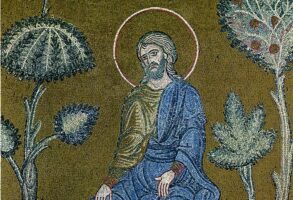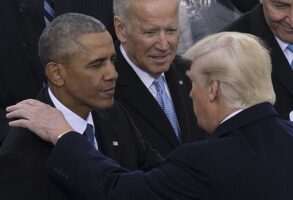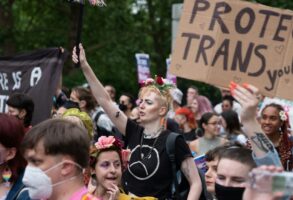Published October 22, 2014
The Catholic Difference
According to Vatican-speak, a specially scheduled session of the Synod of Bishops is an “Extraordinary Synod,” meaning Not-an-Ordinary Synod, held every three years or so. In the case of the recently-completed Extraordinary Synod of 2014, extraordinary things did happen, in the “Oh, wow!” sense of the word. And if this year’s Extraordinary Synod was a preview of the Synod for which it was to set the agenda, i.e., the Ordinary Synod of 2015, that Synod, too, promises to be, well, extraordinary.
How was the Extraordinary Synod of 2014 extraordinary? With apologies to the Bard, let me count the ways:
1. The 2014 Synod got an extraordinary amount of press attention. Alas, too much of that attention was due to the mass media misperception that The Great Moment of the Long-Awaited Catholic Cave-In was at hand: the moment when the Catholic Church, the last major institutional hold-out against the triumph of the sexual revolution, would finally admit the error of its ways and join the rush into the promised land of sexual liberation, symbolized in this instance by a Catholic cave-in on the nature of marriage. What ought to have gotten the world’s attention—the witness of African bishops to the liberating power of monogamy and lifelong marital fidelity—got sadly short shrift, though Third World women are the principal beneficiaries of the truth about marriage the Church received from its Lord.
2. The 2014 Synod demonstrated the extraordinary self-confidence of bishops from dying local churches who nonetheless feel quite comfortable giving pastoral advice to local churches that are either thriving or holding their own. Many northern European bishops and theologians (and bishop-theologians) acted as if the blissful years when they set the agenda for the world Church at Vatican II had returned. That these same bishops and theologians and bishop-theologians have presided over the collapse of western European Catholicism in the intervening five decades seemed not to matter to them in the slightest. Happy days were here again.
3. The 2014 Synod was extraordinary, or at least the media claimed it was, for an unprecedented public display of discord among cardinals. Perhaps those who found this either unprecedented or unseemly could consult Galatians 2:11, where Paul reports that he “rebuked” Peter “to his face.” Or ponder the fierce arguments among North African bishops during the Donatist controversy. Or look into the quarrel between Bishop Cyprian of Carthage, a doctor of the Church, and Pope Stephen, Bishop of Rome. Or read the debates at the first session of Vatican II. The 2014 controversies were indeed noteworthy, in that otherwise intelligent men whose position had been pretty well demolished by fellow scholars were incapable of admitting that they’d gotten it wrong. But upon further review (as they say in the NFL), that isn’t so new either.
4. The 2014 Synod was extraordinary in that a lot of theological confusion was displayed by elders of the Church who really ought to know better. The idea of the development of doctrine was especially ill-used by some. Of course the Church’s self-understanding develops over time, as does the Church’s pastoral practice. But as Blessed John Henry Newman showed in the classic modern discussion of the subject, all authentic development is in organic continuity with the past; it’s not a rupture with the past. Nor is there any place in a truly Catholic theory of doctrinal development for rewriting the words of the Lord or describing fidelity to the plain text of Scripture as “fundamentalism.”
5. The 2014 Synod was extraordinary in its demonstration that too many bishops and theologians (and bishop-theologians) still have not grasped the Iron Law of Christianity in Modernity: Christian communities that maintain a firm grasp on their doctrinal and moral boundaries can flourish amidst the cultural acids of modernity; Christian communities whose doctrinal and moral boundaries become porous (and then invisible) wither and die.
6. One more thing: why were no representatives of the Pontifical John Paul II Institute on Marriage and the Family invited to a Synod on the family?
Extraordinary, indeed: in both Vatican-speak and plain English.
George Weigel is a senior fellow of the Ethics and Public Policy Center in Washington, D.C.





